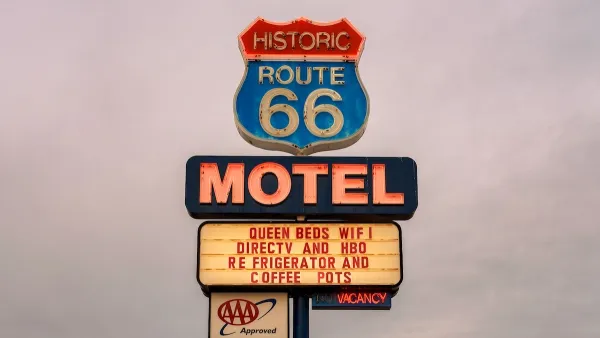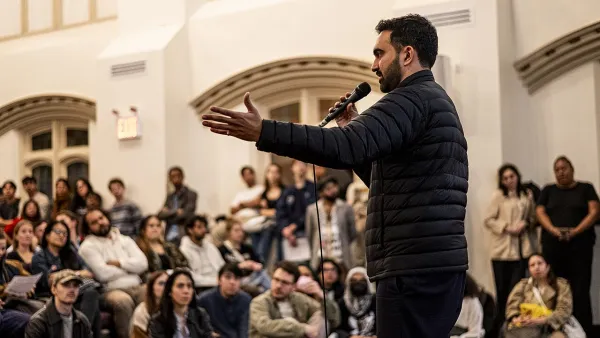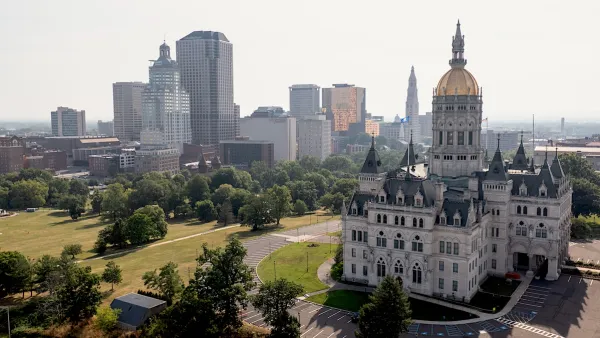A proposed state bill would institutionalize a funding mechanism that could direct millions in new revenue to affordable housing development.

A proposed bill in the Washington state legislature would create a new financing mechanism known as Housing Benefit Districts (HBDs) that would allow local jurisdictions to "tap into property price growth on publicly owned land and add more public land in the process."
As Ron Davis explains in The Urbanist, "HBDs take their cue from a battle-tested policy, called 'Transportation Benefit Districts' ('TBD'). Like TBDs, HBDs give local jurisdictions access to expanded taxing options to fund transportation projects. To date, there are over 100 TBDs in Washington State."
Cities and counties can form HBDs that will allow them to raise additional tax money, which can then be invested into areas around rapid transit. They can put that money toward infrastructure improvements and buying up land, which they can develop, sell, or lease at a later date. At least a third of the land has to go to low income housing, at least a third to middle-income housing, and whatever is left can go to market rate housing. In addition, any profits from the sale or lease of land must go to subsidies for permanently affordable housing and permanently affordable homeownership, to promote community land trusts, or to infrastructure costs. Thus the profits from the increased land prices can fund enormous amounts of affordable housing.
The article details how HBDs would work and the potential they hold for making a significant impact on the affordable housing market.
FULL STORY: Housing Benefit Districts Could Create Millions of Affordable Homes

Planetizen Federal Action Tracker
A weekly monitor of how Trump’s orders and actions are impacting planners and planning in America.

Maui's Vacation Rental Debate Turns Ugly
Verbal attacks, misinformation campaigns and fistfights plague a high-stakes debate to convert thousands of vacation rentals into long-term housing.

San Francisco Suspends Traffic Calming Amidst Record Deaths
Citing “a challenging fiscal landscape,” the city will cease the program on the heels of 42 traffic deaths, including 24 pedestrians.

Amtrak Rolls Out New Orleans to Alabama “Mardi Gras” Train
The new service will operate morning and evening departures between Mobile and New Orleans.

The Subversive Car-Free Guide to Trump's Great American Road Trip
Car-free ways to access Chicagoland’s best tourist attractions.

San Antonio and Austin are Fusing Into one Massive Megaregion
The region spanning the two central Texas cities is growing fast, posing challenges for local infrastructure and water supplies.
Urban Design for Planners 1: Software Tools
This six-course series explores essential urban design concepts using open source software and equips planners with the tools they need to participate fully in the urban design process.
Planning for Universal Design
Learn the tools for implementing Universal Design in planning regulations.
Heyer Gruel & Associates PA
JM Goldson LLC
Custer County Colorado
City of Camden Redevelopment Agency
City of Astoria
Transportation Research & Education Center (TREC) at Portland State University
Jefferson Parish Government
Camden Redevelopment Agency
City of Claremont





























